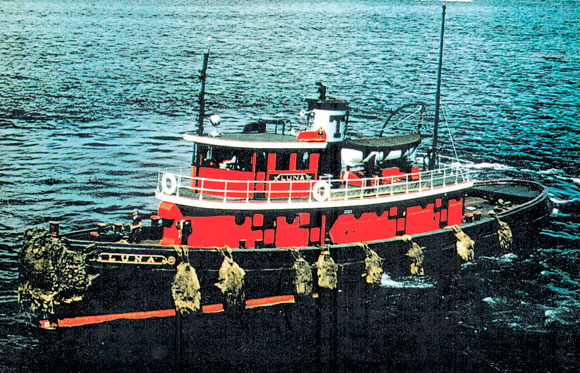A long-dormant program that funds maritime heritage programs is getting a new lease on life thanks to an infusion of funds from the sale of obsolete government ships,
Officials at the National Park Service are preparing to accept applications from states and local governments, museums, libraries, non-profits and foundations that run maritime heritage or education projects, ranging from restoring historic ships to preserving lighthouses.
The National Maritime Heritage Grants Program will receive $7 million over four years — about $2 million per year — from the scrapping of vessels from the Maritime Administration’s National Defense Reserve Fleet. These ships are purchased for recycling and the metal is used to build new boats.
As required by the National Maritime Heritage Act, 25 percent of the profit from these sales is distributed to maritime academies, 25 percent for the National Park Service’s maritime heritage grants, and 50 percent for use by the National Defense Reserve Fleet. Funds are administered by the U.S. Maritime Administration.
The NPS program is a competitive matching grants program, and the emphasis is on projects that recount the U.S.’s rich maritime history.
Robert K. Sutton, chief historian at NPS, said the last and only time grants were available was in 1998, and he is hopeful that funding can continue beyond the next four years as Marad still has ships in the queue for scrapping.
Funds will be split in half between educational grants and preservation grants, Sutton said. Education grants can be used for school programs, interpretive programs and web pages, for example, and preservation grants will be for restoration of ships and other maritime resources.
During its first round of funding in 1998, grants have been awarded to preserve the Point Sur lighthouse in California, continue education programs at Mystic Seaport, Conn., paint the interior of the USS Constellation in Baltimore, replace items lost from the Luna, the world’s first diesel-electric ship-docking tug located in Massachusetts, and preserve the Mayor Andrew Broaddus, the last remaining Coast Guard inland lifesaving station.
Under the ship scrapping program, each of the state and federal maritime academies will receive $1 million for facilities and training ship maintenance and repair and purchase of simulators. Massachusetts Maritime Academy, for example, plans to use its funds to pay for fuel for its training ship, and to upgrade its simulator to train students in dynamic positioning, which is used by supply boats in the offshore industry, according to the Cape Cod Times.
Applications will go out soon. For more information, contact Robert Sutton at NPS: 202-354-2214 or email him at [email protected]




